Exclusive 3:16 interview with René Descartes
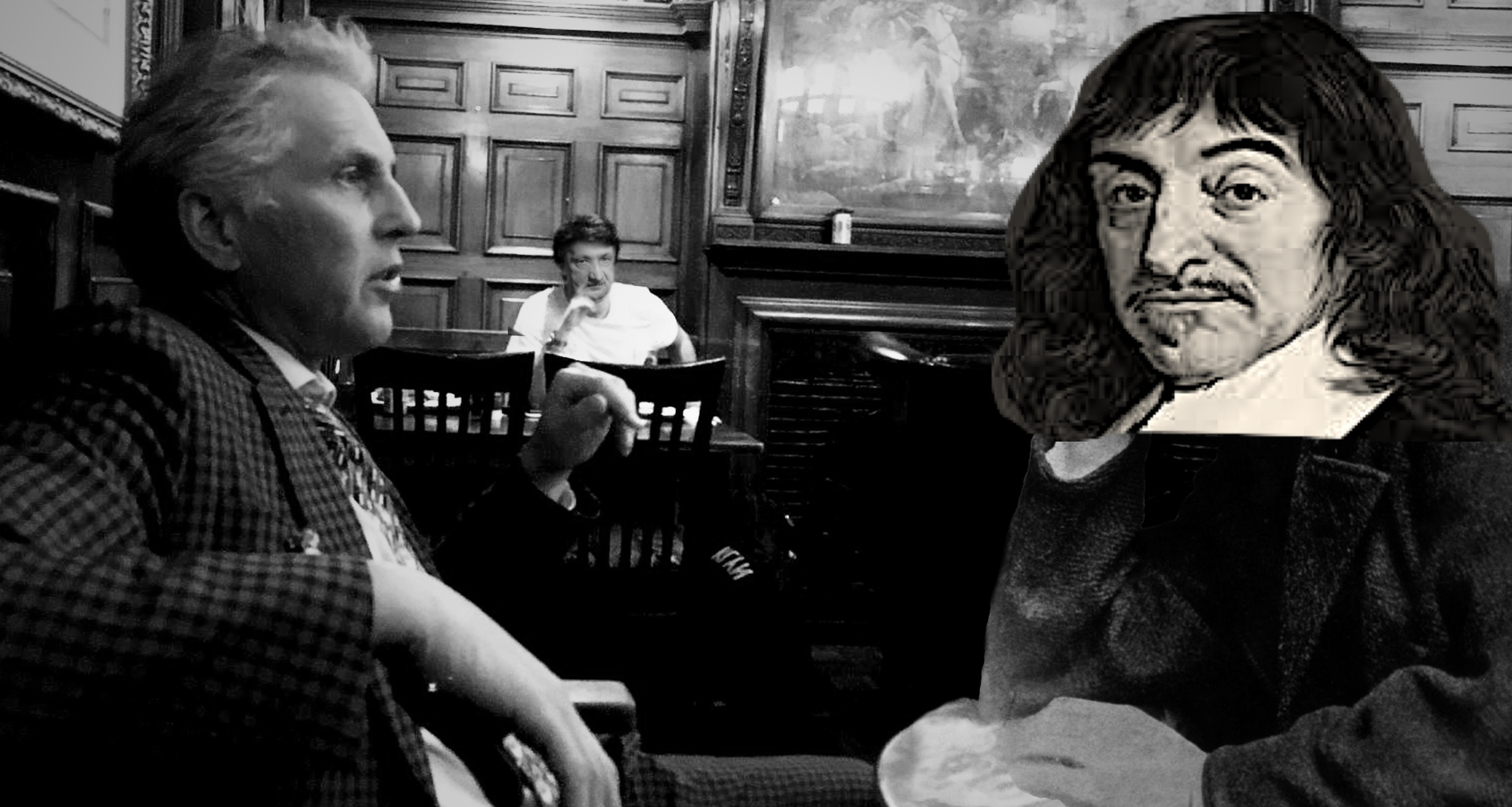
Interview by Richard Marshall
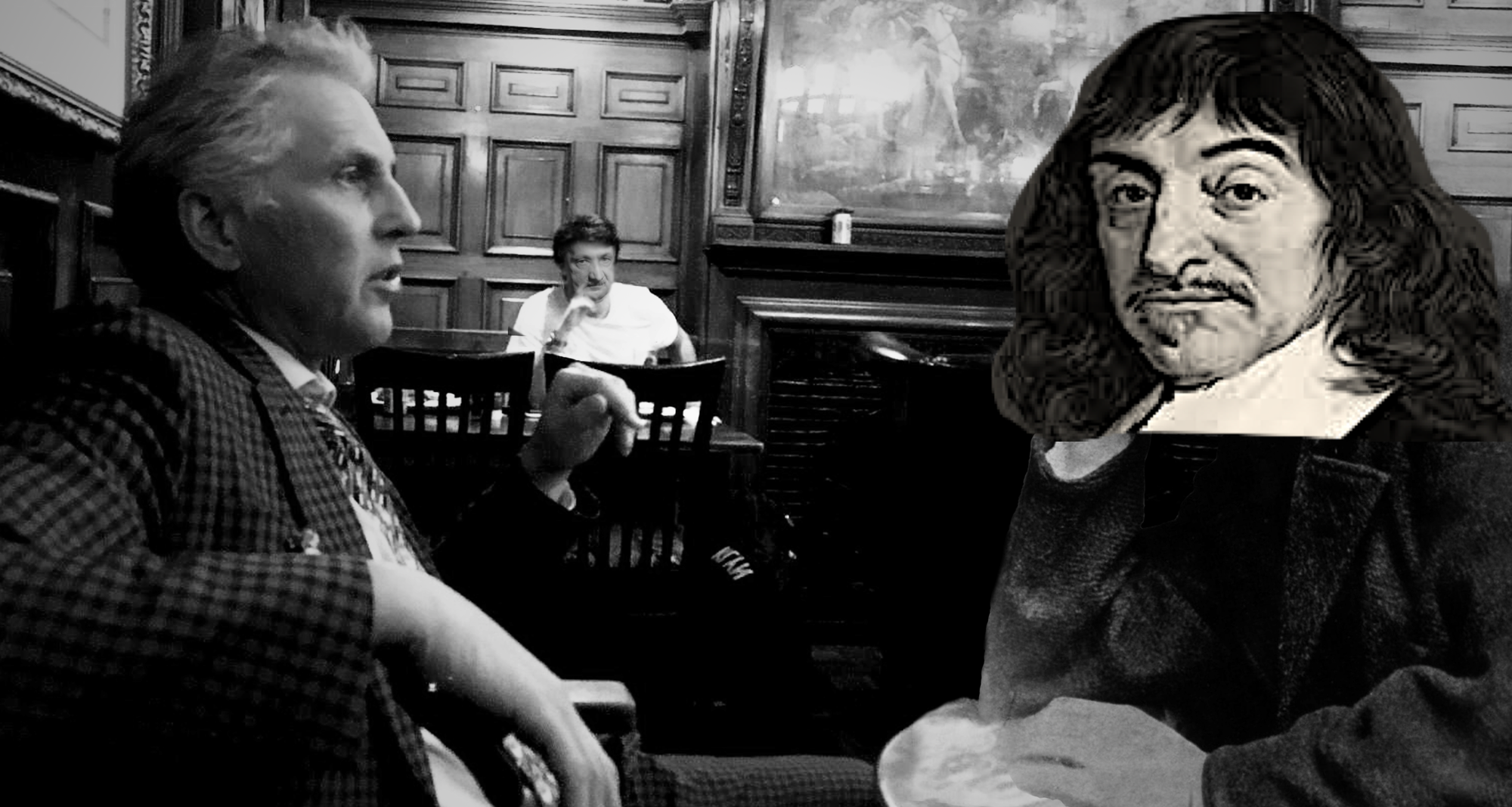
René Descartes is a creative mathematician of the first order, an important scientific thinker, and an original metaphysician. In mathematics, he has developed the techniques that made possible algebraic (or “analytic”) geometry. In natural philosophy, he can be credited with several specific achievements: co-framer of the sine law of refraction, developer of an important empirical account of the rainbow, and proposer of a naturalistic account of the formation of the earth and planets (a precursor to the nebular hypothesis). More importantly, he offered a new vision of the natural world that continues to shape our thought today: a world of matter possessing a few fundamental properties and interacting according to a few universal laws. This natural world includes an immaterial mind that, in human beings, is directly related to the brain; in this way, Descartes formulates the modern version of the mind–body problem. In metaphysics, he provides arguments for the existence of God, to show that the essence of matter is extension, and that the essence of mind is thought. Descartes claimed early on to possess a special method, which was variously exhibited in mathematics, natural philosophy, and metaphysics, and which, is supplemented by, a method of doubt.
3:16: What made you become a philosopher?
René Descartes: To live without philosophizing is in truth the same as keeping the eyes closed without attempting to open them. Some years ago I was struck by the large number of falsehoods that I had accepted as true in my childhood, and by the highly doubtful nature of the whole edifice that I had subsequently based on them. I realized that it was necessary, once in the course of my life, to demolish everything completely and start again right from the foundations if I wanted to establish anything at all in the sciences that was stable and likely to last.
3:16: You’re famous for moving philosophical thinking from a metaphysical to a mechanical understanding of nature. Before we look at the details, how would you summarise this? It caused quite a stir with the Aristotelians didn’t it?
RD: If you find it strange that I do not use the qualities as those philosophers do I shall say to you that these qualities themselves seem to me to be in need of explanation. However, I do want to teach my thinking to speak latin to make it enter more easily into the conversation of the scholastics who are now persecuting it and trying to smother it. And the ministers are as hostile as the Jesuits! My main secret instructs us that all things can be arranged serially to various groups, not in so far as they can be referred to some ontological genus – such as the categories into who which philosophers divide things – but in so far as some things can be known on the basis of others.
3:16: You’re basically saying that philosophers were using the wrong stuff to philosophise about.
RD: Quite.
3:16: Galileo is a go-to guy when it comes to new thinking , overthrowing scholasticism and stuff. How do you rate him?
RD: Generally speaking I find he philosophises much more ably than is usual, to that, so far as he can, he abandons the errors of the Schools and tries to use mathematical methods in the investigation of physical questions. On that score, I am completely at one with him, for I hold that there is no other way to discover the truth. But he continually digresses and does not take time to explain matters fully . This, in my view, is a mistake: it shows that he has not investigated matters in an orderly way, and has merely sought explanations of some particular effects, without going into the primary causes in nature; hence his building lacks a foundation.
Now, the closer his philosophizing gets to the truth, the easier it is to recognize his faults, just as it is easier to tell when those who sometimes take the right road go astray than it is to point out aberrations in the case of those who never begin to follow it. I find that he philosophises well enough on motion, though there is very little he has to say about it that I found entirely true. As far as I could see, he goes wrong more often when following received opinion than when going beyond it, with the exception of his discussion of the ebb and flow of the tides, where I find his reasoning rather forced.
3:16: So you think he’s trying to explain phenomena without getting into their primary causes.
RD: I can only say that neither Gallileo nor any other can determine anything clear and demonstrative regarding a body’s motion being slowed by air, for example, without knowing first what weight is and what are the true principles of physics.
3:16: Have you ever met him?
RD: Let me say that I have never met him and have had no communication with him and consequently I have not borrowed anything from him. Moreover I see nothing in his books that gives me cause to be envious and hardly anything I would wish to acknowledge as my own. The best part is what he has to say on music, but those who know me would rather believe that he got that part from me rather than I got it from him; for I wrote practically the same thing nineteen years ago, at which time I had not yet visited Italy.
3:16: Surprising. Talking of borrowing things – you famously say ‘I think therefore I am’, which we’ll discuss in a bit – but some have said you borrowed this idea from St Augustine. Are they right?
RD: I went to read it today in the library and I find that Augustine makes use of it to prove the certainty of our being, and then to show that there is in us some image of the Trinity, in that we exist, we know that we exist, and we love this being and this knowledge in us. Instead, I use it to make it known that that I who is thinking is an immaterial substance, and has nothing corporeal in it. These are two very different things. It is something so simple and natural in itself to infer that one exists from the fact that one is doubting that it might have come from anybody’s pen. But I am still glad to have come together with St Augustine, if only to shut the mouths of the little minds, Richard, who have tried to quibble with that principle.
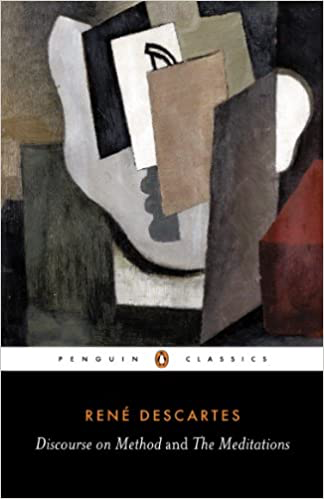
3:16: Ok, so let’s have a look at your method of analysis then. You are really asking the big question: how is metaphysical knowledge possible and challenging the Aristotelian answer to that aren’t you?
RD: Well, when one has true principles and follows them, one cannot fail to come upon other truths from time to time. Indeed, the best way of proving the falsity of Aristotle’s principles is to point out that they have not enabled any progress to be made in all of the many centuries in which they have been followed.
3:16: Is a key problem the reliance on the senses, which are great for things like geometry, say, but not so good in metaphysical enquiry?
RD: The difference is that the primary notions which are presupposed for the demonstration of geometrical truths are readily accepted by anyone, since they accord with the use of our senses. Hence there is no difficulty there, except in the proper deduction of the consequences, which can be done even by the less attentive, provided they remember what has gone before. In metaphysics by contrast there is nothing which causes so much effeort as making our perception of the primary notions clear and distinct. Admittedly, they are by their nature as evident as, or even more evident than, the primary notions which the geometers study; but they conflict with many preconceived opinionsderived from the senses which we have got into the habit of holding from our earliest years, and so only those who really concentrate and meditate and withdraw their minds from corporeal things, as far as possible, will achieve perfect knowledge of them.
3:16: You discuss the distinction between analysis and synthesis in terms of approaches to demonstration. Can you explain this for us?
RD: The order consists simply in this. The items that are put forward first must be known enirely without the aid of what comes later; and the remaining items must be arranged in such a way that their demonstration depends soley on what has gone before.Analysis shows the true way by means of which the thing in question was discovered methodically and as it were, a priori – so that if the reader is willing to follow it and give sufficient attention to all points he will make the thing his own and understand it just as perfectly as if he had discovered it for himself.
3:16: So as long as I’m paying close attention and not being argumentative for the sake of argument, and so long as I don’t miss out even the smallest point of the analysis, then I’m going to be able to understand the result of the analysis.
RD: Quite so. And of course, there are many truths which – although it is vital to be aware of them – this method often scarcely mentions since they are transparently clear to anyone who gives them his attention.
3:16: So that’s analysis. What’s synthesis?
RD: Synthesis , by contrast, employs a directly opposite method where the search is, as it were, a posteriori – though the proof itself is often more a priori than it is in the analytic method. It demonstrates the conclusion clearly and employs a long series of definitions, postulates, axioms, theorems and problems so that if anyone denies one of the conclusions it can be shown at once that it is contained in what has gone before, and hence the reader, however argumentative or stubborn he may be, is compelled to give his assent. However this method is not as satisfying as the method of analysis , nor does it engage the minds of those who are eager to learn since it does not show how the thing in question was discovered.
3:16: Is this what the ancient geometers used?
RD: Yes, but this was not because they were utterly ignorant of analysis but because they had such a high regard for it that they kept it to themselves like a sacred mystery. Analysis is the best and truest method of instruction and it is this method alone that I used for my Meditations.
3:16: So analysis is about the original discovery of truth whereas synthesis presumes that they already have the truth?
RD: Yes, the logic of the Schools is nothing but a dialectic which teaches ways of expounding to others what one already knows. Dialecticians are unable to formulate a syllogism with a true conclusion unless they are already in possession of the substance of the conclusion and so it is obvious that they themselves can learn nothing new from such a form of reasoning, and hence that ordinary dialectic is of no use whatever to those who wish to investigate the truth of things. Its sole advantage is that it sometimes enables us to explain others arguments which are already known.
3:16: So is your enquiry, being analytic, assumption free?
RD: I just said that some things are transparently clear, so we can pressupose them. Take the principle: Everything which thinks is, or exists. You learn it from experiencing in your own case that it is impossible that you should think without existing. It is in the same nature of our mind to construct general presuppositions on the basis of our knowledge of particular ones. When we examine it it appears so evident to the understanding that we cannot but believe it even though this may be the first time in our life that we have thought of it – in which case we would have no preconceived opinon about it – It is certain that if we were to discover the truth we must always begin with particular notions to arrive at general ones later – though we may also reverse the order and deduce other particular truths once we have discovered general ones. Thus when we teach a child the elements of geometry we will not be able to get him to understand the general proposition ‘ When equal quantities are taken from equal amounts the remaining amounts will be equal’ or ‘ The whole is greater than its parts’ unless we show him examples in particular cases.
3:16: So do you think we should always have a method if we want to investigate the truth of anything?
RD: It is far better never to contemplate investigating the truth about any matter than to do so without a method. By ‘method’ I mean reliable rules which are easy to apply, and such that if one follows them exactly, one will never take what is false to be true or fruitlessly expend one’s mental efforts but will gradually and constantly increase one’s knowledge till one arrives at a true understanding of everything within one’s capacity.
3:16: It seems that you want your deductions to be knowledge preserving rather than just valid. You want the premises of the deduction to be known?
RD: The whole method consists entirely in the ordering and arranging of the objects on which we must concentrate our mind’s eye if we are to discover some truth. We shall be following this method exactly if we first reduce complicated and obscure propositions step by step to simpler ones, and then, starting with the intuition of the simplest ones of all, try to ascend through the same steps to a knowledge of all the rest.
3:16: Is it ever possible to know these simple natures?
RD: It is evident that we are mistaken if we ever judge that we lack complete knowledge of any one of these simple natures. For if we have even the slightest grasp of it in our mind it must follow that we have complete knowledge of it. Otherwise it could not be said to be simple, but a composite made up of that which we perceive in it and that of which we judge we are ignorant.
3:16: You say we can achieve knowledge via intuition – and this is another break you make from the Scholastics isn’t it? What do you mean by intuition?
RD: I do not mean the fluctuating testimony of the senses or the deceptive judgement of the imagination as it botches things together but the conception of a clear and attentive mind, which is so easy and distinct that there can be no room for doubt about what we are understanding. Intuition is the indubitable conception of a clear and attentive mind which proceeds solely from the light of reason.
3:16: And why is this different from the scholastics approach?
RD: Because awareness of first principles is not normally called knowledge by dialecticians.
3:16: You don’t just want a mind able to do good deductive reasoning then do you, you want a conceptually engaged mind?
RD: Yes, our principle concern is to guard against our reason’s taking a holiday while we are investigating the truth about some issue, so we reject the syllogistic forms of reasoning as inimical to our project. Instead, we search carefully for everything which may help our mind stay alert.
3:16: So is clarity and distinctness the fundamental criterion of truth?
RD: Yes. A perception which can serve as the basis for a certain and indubitable judgement needs to be not merely clear but also distinct.
3:16: What’s the difference between ‘clear’ and ‘distinct’?
RD: I call a perception clear when it is present and accessible to the attentive mind. I call a perception distinct if, as well as being clear, it is also sharply separated from all other perceptions that it contains within itself only what is clear.
3:16: Is simplicity then the key to perceptual distinctiveness?
RD: Not necessarily. A concept is not any more distinct because we include less in it; its distinctness simply depends on our carefully distinguishing what we do include in it from everything else.
3:16: So if perceptual distinctness is the aim, what’s the means of achieving this?
RD: My method imitates that of an architect. When an architect wants to build a house which is stable on ground where there is sandy topsoil over underlying rock, or clay, or some other firm base, he begins by digging out a set of trenches from which he removes the sand, and anything resting on or mixed in with the sand, so that he can lay his foundations on firm soil. In the same way, I began by taking everything that was doubtful and throwing it out, like sand; and then, when I noticed that it was impossible to doubt that a doubting or thinking substance exists, I took this as the bedrock on which I could lay the foundations of my philosophy.
3:16: So doubt is the means? Whatever an evil deceiving demon can’t fool you with, that’s the foundation?
RD: Yes. It is wholly necessary in order to lay the first foundations of philosophy.
3:16: You bring in God as part of the method to demonstrate that these innate concepts are for an actual reality don’t you?
RD: I do. The fact that an atheist can be clearly aware that the three angles of a triangle are equal to two right angles is something I do not dispute. But I maintain that this awareness of his is not true knowledge since no act of awareness that can be rendered doubtful seems fit to be called knowledge. Now since we are assuming that this individual is an atheist he cannot be certain that he is not being deceived on matters which seem to him to be very evident. Now perhaps some God could have given me a nature such that I was deceived even in matters that seemed most evident. And whenever my preconceived belief in the supreme power of God comes to mind I cannot but admit it would be easy for him, if he so desired, to bring it about that I go wrong even in those matters which I think I see utterly clearly with my mind’s eye.
3:16: So is your cogito a first principle derived from contemplation on doubt?
RD: Yes. I noticed that while I was trying to think everything false it was necessary that I, who was thinking this, was something. And observing that this truth ‘I am thinking, therefore I exist’ was so firm and so sure that all the most extravagant suppositions of the skeptics were incapable of shaking it, I decided that I could accept it without scruple as the first principle of the philosophy I was seeking.
3:16: So your rule of clarity and distinctness – your foundational epistemic principle – was derived from this – it wasn’t just something you presupposed?
RD: Exactly. There was nothing at all in the proposition ‘I think therefore I exist’ to assure me that I was talking the truth except that I could see very clearly that in order to think it is necessary to exist. So I decided that I could take it as a general rule that the things we conceive very clearly and very distinctly are all true.
3:16: So is what you discover by your method that my soul is all that is necessary for my existence?
RD: Yes. Examining attentively that which I was, I saw that I could conceive that I had no body, and that there was no world nor place where I might be, yet that I could not for all that conceive that I was not. On the contrary, I saw from the very fact that I thought of doubting the truth of other things, it very evidently and certainly followed that I was; on the other hand if I had only ceased from thinking, even if the rest of what I had ever imagined had really existed, I shuld have no reason for thinking that I had existed . From that I knew that I was a substance the whole essence or nature of which is to think., and that for its existence there is no need of any place, nor does it depend on any material thing; so this 'me', that is to say, the soul by which I am what I am, is entirely distinct from body, and is even more easy to know than is the latter, and even if body were not, the soul would not cease to be what it is.
3:16: Ok, so with this method you come up with your metaphysics. You’ve got a physics of your own in mind, and scholasticism is floating around somewhere in the back of things – does this mean that your metaphysics isn’t very systematic?
RD: Richard, my thoughts are so interconnected that I dare to hope that people will find my principles are as well proved by the consequences I derive from them as the borrowed nature of the moon’s light is proved by its waxing and waning.
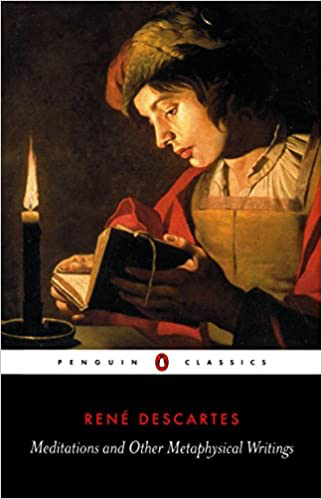
3:16: So what’s the foundation of your metaphysical system?
RD: God. The unity, the simplicity and the inseperability of all the attributes of God. His aseity. In God willing and knowing are a single thing in such a way that by the very fact of willing something he knows it and it is only for this reason that such a thing is true.
3:16: Your views on God are a bit unorthodox though aren’t they? For instance, don’t you say that essences and their eternal truths were created?
RD: God created them by the same kind of causality that he created all things, that is to say, as their efficient and total cause. For it is certain that he is the author of the essence of created things no less than of their existence, and this essence is nothing other than the eternal truths. In God willing, understanding and creating are all the same thing.
3:16: You also deny that there’s nothing in God’s own nature – not even his intellect – that can determine his will.
RD: It is self-contradictory to suppose that the will of God was not indifferent from eternity with respect to everything which has happened or will ever happen, for it is impossible to imagine that anything is thought of in the divine intellect as good or true prior to the decision of the divine to make it so.
3:16: You have a very austere ontology don’t you – there’s God, and then just two kinds of substance, minds and bodies whose essences are thought and extension respectively. Is that right?
RD: And their attributes. Nothing has no attributes.
3:16: Ok, so what’s a substance?
RD: Whatever has independent existence.
3:16: And what’s a mode?
RD: Their way of being. The only idea we have of a substance is that it is a thing in which whatever we perceive exists, and what we perceive is some property, quality or attribute.
3:16: Is that why you think its easier to form a clear and distinct conception of thinking substance and extended substance from substance in general?
RD: Yes, we have some difficulty in extracting the notion of substance from the notions of thought and extension which are distinct merely by means of reason.
3:16: What has time got to do with modes?
RD: Some attributes or modes are in the very thing s in which they are said to be attributes or modes, while others are only in our thought. For example, when time is distinguished from duration taken in the general sense and called the measure of movement it is simply a mode of thought. In order to measure the duration of all things, we compare their duration with the duration of the greatest and most regular motions which give rise to years and days and we call this duration ‘time’. Yet nothing is therefore added to duration, taken in the general sense, except for a mode of thought.
3:16: Is time continuous or discontinuous?
RD: Well, a lifespan can be divided into countless parts, each completely independent of the others, so that it does not follow from the fact that I existed a little while ago that I must exist now, unless there is some cause which as it were creates me afresh at this moment – that is, which preserves me. For it is quite clear to anyone who attentively considers the nature of time that the same power and action are needed to preserve anything at each individual moment of its duration as would be required to create the thing anew if it were not yet in existence. Hence the distinction between preservation and creation is only a conceptual one.
3:16: So it’s continuous because on this picture continuous recreation isn’t continuity?
RD: Yes. If substances exist then I think it involves a contradiction to conceive of any duration intervening between the destruction of an earlier world and the creation of a new one.
3:16: Although you are a substance dualist, you do think that mind body interaction is what is important for mind and human psychology don’t you? Can the body alone be responsible for reasonable behaviour independent of the mind?
RD: When people take a fall, and stick out their hands so as to protect their head, it is not reason that instructs them to do this; it is simply that the sight of the impending fall reaches the brain and sends the animal spirits into the nerves in the manner necessary to produce this movement even without mental volition, just as it would be produced in a machine.
3:16: So you think the body has its own defence mechanisms independent of any sense-plan-move hyper intellectualism of the thinking substance?
RD: Yes.
3:16: You don’t think animals have minds at all do you – they’re just bodies doing what they do like a clockwork machine?
RD: Yes. Their functions follow from the mere arrangement of the machine’s organs every bit as naturally as the movements of a clock or other automaton follow from the arrangement of its counter-weights and wheels. There’s no vegetative or sensitive soul.
3:16: So how do the mind and body unite in a human? If minds are incorporeal, and bodies corporeal isn’t there a conceptual problem here?
RD: The union of the soul and the body is known only obscurely by the intellect. It’s an issue I haven’t dealt with at all. But nothing reaches our mind from external objects through the sense organs except certain corporeal motions. But neither the motions themselves nor the shape arising from them are conceived by us exactly as they occur in the sense organs, as I explained in my Optics. I maintain that when God unites a rational soul to this machine, the body, he will place its principle seat in the brain and will make its nature such that the soul will have different sensations corresponding to the different ways in which the entrances to the pores in the internal surface of the brain are opened by means of the nerves.
Suppose, firstly, that the tiny fibres which make up the marrow of the nerves are pulled with such force that they are broken and separated from the part of the body to which they are joined, with the result that the structure of the whole machine becomes somehow less perfect. Being pulled in this way the fibres cause a movement in the brain which gives occasion for the soul to have the sensation of pain.
3:16: So fibres breaking really do cause the pain – they don’t just cause the occasion for God to cause pain in my soul? God sets it all up, but he’s not required to be constantly working to cause mental effects on the occasion of physical movements? It’s Deus ex machina but not occasionalism?
RD: Yep.
3:16: Ok. Is human behaviour explained by a sort of hyper-intellectualism in which reasoning and planning are behind all our everyday actions, such as seeing?
RD: Well not really. The seeing of distance depends, firstly, on the shape of the body of the eye. For us to see things close to our eyes this shape must be slightly different from the shape which enables us to see things further away, and as we adjust the shape of the eye according to the distance of seen objects, we change a certain part of our brain in a manner that has been instituted by nature to make our soul perceive this distance.
3:16: I see, so no calculation or inference is needed. Can bodies stir up the passions to make the mind continue what the body is already doing? In other words, can brain states cause the mind to feel fear and as such mental and body states align in accordance of nature?
RD: Awareness of a frightful animal makes the body, without any contribution from the mind, cause the person to flee and feel fear. The function of the passions is that they move and dispose the soul to want the things for which they prepare the body. Thus the feeling of fear moves the soul to want to flee.
3:16: But as with your machine psychology for animals, you think a non-mentalistic behaviourism will explain bits of human behaviour too don’t you? Do you think because you see the brain as more than just a passive conduit linking world to mind then there’s not really a ghost in the machine.
RD: Hmmm…
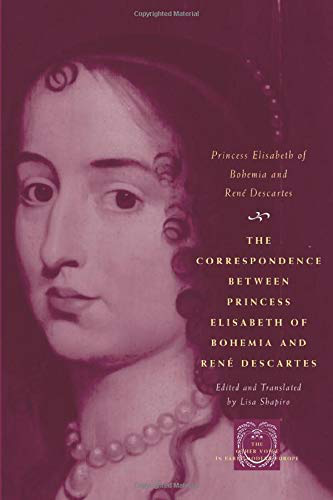
3:16: You’re actually very interested in medicine and the well being of the body aren’t you?
RD: The preservation of health has always been the principle end of my studies. I’m very interested in the difficulties pertaining to medicine and the most important questions of medicine. I always wanted to study anatomy to discover a system of medicine based on infallible demonstrations, studying chemistry and anatomy simultaneously. I am attempting to explain all the main functions in man such as digestion of food , the heart beat, the distribution of nourishment and the five senses.
3:16: So why is anatomy and medicine, alongside optics, so important to you?
RD: Because we observe luminous bodies. We know sufficiently well that it is the soul that senses, not the body. It is in the brain where the soul exercises that faculty which is called common sense and we know that it is through the medium of the nerves that impressions which objects cause in the external members are transmitted to the soul in the brain. In order to understand in greater detail how the soul, located in the brain, can thus receive impressions of external objects through the mediation of the nerves, it is necessary to distinguish three things in these nerves which the anatomists and doctors sufficiently acknowledge although no one among them has adequately distinguished their use. Clearly, in order to perceive, the mind need not contemplate any images resembling the things that it senses.
3:16: You actually did experiments on the eyes of cattle to discover retinal images that Kepler had proposed didn’t you?
RD: I did. If, taking the eye of an ox or some other large animal, you carefully cut through to the back of the three membranes which enclose it, cover it over with some white body thin enough to let daylight pass through it, as for example with a piece of paper or with an eggshell and place this eye in the hole of a specially made window and then look at the white body we shall see there, not perhaps without admiration and pleasure, a picture which will represent in natural perspective all the objects which will be outside . Having thus seen this picture of the eye of a dead animal, and having considered its causes, you cannot doubt that an entirely similar one is formed in the eye of a live man on the retina.
3:16: Now you said earlier that you hadn’t dealt with how the mind and body interact, but the metaphysics of soul and body as well as your mechanical explanations seem to be important in your interest in physiology – and here you seem to be saying that all the body’s motions can be explained by the body. Is that right?
RD: Yes. When I looked to see what functions would occur in such a purely material body I found precisely those which may occur in us without us thinking of them, and hence without any contribution from our soul. These functions are just the ones in which animals without reason may be said to resemble us. But I could find none of the functions which, depending on thought, are the only ones that belong to us as men.
3:16: You think the heart and blood are the centre of animal living don’t you?
RD: Cardiac motion is so important to know that without it we cannot know anything about the theory of medicine because all the other functions in the animal depend on it. But don’t hold that what I wrote is the same as Harvey’s view, simply because I believe in the circulation of the blood: my explanation of the movement of the heart is radically different from his.
3:16: This is all very anti-Aristotelian and anti-Platonic too isn’t it – because they said it was souls that animate bodies whereas you see the body as pipes filled with blood and nerves with animal spirits moving the body and informing the soul of the body’s condition through common sense. Was it the idea of understanding good health that motivated your practical philosophising then?
RD: The preservation of health is undoubtedly the chief good and foundation of other goods in this life. If it is possible to find some means of making men in general wiser and more astute than they have been up till now, I believe we must look for it in medicine. We also might free ourselves of an infinity of diseases, both of the body and the mind, and perhaps even from the infirmity of old age if we had sufficient knowledge of their causes and of all the remedies that nature has provided us.
3:16: You have ideas about how we might heal body and soul don’t you? So can you give us an overview?
RD: Diet and exercise are best of all, leaving aside those remedies pertaining to the soul. I have no doubt that the soul has great power over the body, as is shown by the great bodily changes produced by anger, fear and other passions. I know no thought more proper for preserving health than a strong conviction and firm belief that the architecture of our bodies is so thoroughly sound that when we are well we cannot easily fall ill except through extraordinary excess or infectious air or some other external cause, while when we are ill we can easily recover by the unaided force of nature, especially when we are still young.
3:16: So depressing thoughts can be harmful? Was reading the Stoics important to this line of your thinking?
RD: Yes. Epictetus and Lucrecius. We should regulate our desire so that it can follow only what is according to nature and not what is contrary to it. Beyond our power are our bodies, our riches, our reputations and, in a word, everything that does not depend on our will. Consideration of sad and pitiful objects by itself would be enough gradually to constrict someone’s heart and make them sigh in such a way that the circulation of the blood would be delayed and slowed down. The grosser parts of his blood, sticking together, could easily block the spleen, by getting caught and stopping in its pores. The more rarefied parts, being continually agitated , could affect his lungs and cause a cough which in time could be very dangerous. Happy thoughts would be capable of restoring him to health even if his spleen and lungs were already in poor condition because of the bad condition of the blood caused by sadness. You could add medical remedies to thin out the part of the blood causing the obstruction of course.
3:16: This is very different reasoning from the scholastics where it was all about the humours and the four elements and so forth. You even recommend going to the spa don’t you?
RD: Bodily health is the foundation of all the other goods of this life. Yes. It frees your mind from sad thoughts. When we are ill nature still remains the same and makes light of any obstacles in her way provided we obey her. We should allow people the food and drink they frequently desire when they are ill because in such cases nature herself works to effect her own recovery with her perfect internal awareness of herself, she knows better than the doctor who is on the outside. No one who has reached the age of thirty should need a doctor since at that age he is quite able to know for himself through experience what is good or bad for him, and so be his own doctor.
3:16: So I guess we need to know what the passions are that you make so much of in this?
RD: The defectiveness of the sciences we inherit from the ancients is nowhere more apparent than in what they wrote about the passions. What they taught about them is so little and for the most part so little believable that I cannot hope to approach the truth unless I forsake the paths they followed. My purpose is to explain the passions as a physicist.
3:16: So the ancients had divisions in the soul, but you don’t do you?
RD: There is only one single soul in us and this soul has within itself no diversity of parts: the very one that is sensitive is rational and all its appetites are volitions.
3:16: So unlike Plato, Augustine and other ancients you say there’s no conflict between the part of us that’s rational and the part that’s full of desires – between sensitive and rational appetites?
RD: That error arises from the fact that its functions have not been rightly distinguished from those of the body; to which alone must be attributed everything to be found in us that is opposed to our reason.
3:16: Do you agree with someone like William James who says we don’t cry because we’re sad but we’re sad because we cry?
RD: Kind of. The soul is immediately informed of things that harm the body only by the sensation it has of pain, which produces in it, first, the passion of sadness; next, the hatred of what causes the pain; and third, the desire to get rid of it. So also the soul is immediately informed of things that are useful to the body only by some form of titillation which, exciting joy in it, next arouses love of what one believes to be its cause, and finally the desire to acquire what can make one continue having this joy or enjoy one like it later on again. The use of all the passions consists in this alone; they dispose the soul to will the things nature tells us are useful and to persist in this volition.
3:16: So when we see something frightening, say, this causes the brain to send out signals to change the blood and make us move away from the frightening thing?
RD: Yes. As I explained before Richard, say we see a very strange and frightful animal, the spirits reflected from the image thus formed on the gland move in part into the nerves serving to turn the back and move the legs for running away, and in part into those which so enlarge or contract the heart’s orifaces, or those which agitate the other parts from which the blood is sent to it, that this blood, being rarefied there in an unusual manner, sends spirits to the brain suitable to maintain and strengthen the passion of fear.
3:16: So none of this implies any intervention by the soul although the strength of the soul can be a determining factor of the reaction?
RD: Yes. The passions of the soul may be generally defined thus: perceptions or sensations or emotions of the soul which are referred to it in particular, and which are caused, maintained and strengthened by some movement of the spirits.
3:16: Given what you’ve said earlier about some thoughts and passions like joy being healthier than others – like sadness – do you think that there’s a kind of unity between virtue and what you call the temperament of the body –so that like the Stoics you think if we can master passions we’re better off?
RD: The passions are almost all good and so useful in this life that our soul would have no reason to wish to remain joined to the body for even one minute if it could not feel them. The men they can move the most are capable of tasting the most sweetness in this life. The substantial union of mind and body is a source of joy.
3:16: So why do you think the passion of generosity is important, and how does this link to your views about free will?
RD: Generosity is the key to all the other virtues and a general remedy for every disorder of the passions. It is the exercise of our freewill and the control we have over our volitions and the firm and constant resolution to use our freedom well. So, for example, we can assent to many things that we know only in a very obscure and confused manner, and of course, in such cases if I affirm or deny then I am not using my freewill correctly. It is surely no imperfection of God that he has given me freedom to assent or not to assent to things about which he has not placed a clear and distinct perception in my intellect. But it is undoubtedly an imperfection in me that I do not use that freedom well and make judgments about things that I do not understand.
3:16: So is this freedom just the ability to have done otherwise?
RD: The will, or freedom of choice simply consists in this: that we are able to do or not do, or better, that we are carried toward what the intellect proposes for affirmation or denial or for pursuit or avoidance in such a way that we do not feel ourself determined by an outside force.
3:16: But don’t you also say that if we have a clear and distinct idea then we kind of have to assent to it? So this would be a slightly different take on freedom if you think this is freewill too?
RD: True, in those cases we spontaneously give our assent to it and are quite unable to doubt its truth. The will is drawn voluntarily and freely but nevertheless inevitably towards a clearly known good.
3:16: Hmm. But you also want us to be praised for doing this, which implies it needn’t be inevitable?
RD: Point taken. We do not praise automatons for accurately producing all the movements they were designed to perform, because the production of these movements occurs necessarily. It is the designer who is praised for in constructing automatons he acted not out of necessity but freely. By the same principle when we embrace the truth, our doing so voluntarily is much more to our credit than would be the case if we could not do otherwise.
3:16: So how does this work then?
RD: We have a positive faculty of determining oneself to one or other of two contraries , that is to say, to pursue or avoid, to affirm or deny and the will has this faculty not only with respect to those actions to which it is not pushed by any evident reasons on one side rather than the other, but also with respect to all other actions. When a very evident reason moves us in one direction, although morally speaking we can hardly move in the contrary direction, absolutely speaking we can. For it is always open to us to hold back from pursuing a clearly known good, or from admitting a clearly perceived truth, provided we consider it a good thing to demonstrate the freedom of our will by doing so.
3:16: So are you a compatibilist (we’re determined but free is compatible with that) or a libertarian (willing isn’t determined)?
RD: Well, God could have brought it about that without losing my freedom and despite the limitations in my knowledge I should nonetheless never make a mistake. And when a child the mind was a total slave to the body, but as an adult although probably conjectures may pull me in one direction the mere knowledge that they are simple conjectures and not certain and indubitable reasons is itself quite enough to push my assent the other way.
3:16: So this is some sort of libertarianism isn’t it? And you also think we are free to make errors – in other words, you don’t think like the compatibilist who says that God causes us to freely cause error, entailing that God also causes that error?
RD: The essence of error lies in the operation of the will in so far as it proceeds from me, but not from the faculty of will which I received from God, nor even in its operation, in so far as it depends on him.
3:16: I’m not sure I understand how God leaves free actions undetermined?
RD: Me too. We can easily get ourselves in great difficulties if we attempt to reconcile divine preordination with the freedom of our will, or attempt to grasp both these things at once. But we shall get out of these difficulties if we remember that our minds are finite while the power of God is infinite. Nonetheless we have such a close awareness of the freedom and indifference in us it would be absurd , simply because we do not grasp one thing, which we know must be beyond our comprehension, to doubt something else of which we have an intimate grasp and which we experience within ourselves.
3:16: Is all nature mechanics? Is your physics mechanics?
RD: The rules of mechanics are the same as those of nature. So yes, my entire physics is nothing but mechanics. In having tried to explain the universal nature of material things I have considered the shapes, motions, and sizes of bodies and examined, according to the laws of Mechanics, confirmed by certain and everyday experiences, what must follow from the mutual concourse of these bodies. In my kind of philosophy I use no reasoning which is not mathematical or evident and all my conclusions are confirmed by true observations. The mechanics now current is nothing but a part of the true physics which, not being welcomed by the supporters of the common sort of philosophy, took refuge with the mathematicians. This part of philosophy has in fact remained truer and less corrupt than the others, because it has useful and practical consequences, and so any mistakes in it result in financial loss. There really are no reasons in mechanics which do not also pertain to physics, of which it is a part or species: nor is it less natural for a clock composed of these or those wheels to tell the time, than it is for a tree originating from this or that seed to produce a certain type of fruit. To explain the universal nature of material things I have certainly not used any principle which was not admitted by Aristotle. This philosophy is not new but the oldest and most common of all.
3:16: But doesn’t that conflate early modern mechanics with post-Newtonian mechanics?
RD: I don’t aim at mechanistic explanations but a priori demonstrations using a posteriori reasoning from Aristotelian mechanics.
3:16: Do we need mathematical practice to gain mathematical knowledge and of philosophy?
RD: Yes. Even though we know other people’s demonstrations by heart we shall never become mathematicians if we lack the intellectual aptitude to solve any given problem. And even though we have read all the arguments of Plato and Aristotle we shall never become philosophers if we are unable to make a sound judgment on matters which come up for discussion; in this case what we would seem to have learned would not be science, but history.
3:16: Is one of the things you grapple with in your mathematics what it means for a problem to be solved? I guess this geometry work sheds light on everything you’re doing as a philosopher rather than just your work on mathematics generally?
RD: True. If we wish to solve any problem, we first suppose the solution already effected and give names to all the lines that seem needful of construction – to those that are unknown as well as those that are known. Then, making no distinction between known and unknown lines, we must unravel the difficulty in any way that shows most naturally the relations between these lines, until we find it possible to express a single quantity in two ways. This will constitute an equation.
3:16: You offer proofs of God’s existence don’t you? Can you summarise them?
RD: The natural light shows that there must be at least as much reality in the efficient and the total cause as in its effect. I am a res cogitans having the idea of God. My being cannot have come from myself consequently I depend on some being different from myself. I cannot be produced by causes less perfect than God, such as my parents. Given that there must be at least as much cause as in the effect and I am a thinking thing my cause too will be a thinking thing and must possess the idea of all the perfections which I attribute to God. There must be a first cause which comes from itself with the power to possess all of the perfections of which it has an idea, and this is God. Also, I do not know less clearly and distinctly that an eternal existence is contained in God’s nature than I know some figure or number truly pertains to the nature of any figure or number. Existence can’t be separated from God’s essence. As such there is no less repugnance to our conceiving of a God to whom existence is lacking than to conceive of a mountain which has no valley.
3:16: How do morals fit into your scheme of things?
RD: Philosophy is like a tree. The roots are metaphysics; the trunk is physics, and the branches emerging from the trunk are all the other sciences, which may be reduced to three principle ones, namely medicine, mechanics and morals. By morals I understand the highest and most perfect moral system which presupposes a complete knowledge of the other sciences and is the ultimate level of wisdom. I must say in confidence that what little knowledge of physics I have tried to acquire has been a great help to me in establishing sure foundations in moral philosophy.
3:16: So you have developed a morality based on your philosophy of doubt?
RD: Everyone should always try to employ his mind as well as he can to discover what he should or should not do in all the circumstances of life. They should have a firm and constant resolution to carry out whatever reason recommends without being diverted by passions or appetites, and bear in mind that while he guides himself , as far as he can, by reason, all the good things which he does not possess are entirely outside his power. In this way he will grow accustomed not to desire them.
3:16: Does knowing there is a God help in all this?
RD: It teaches us to accept calmly all the things which happen to us as expressly sent by God. Since the true object of love is perfection when we lift up our minds to him we find ourselves naturally so inclined to love him that we even rejoice in our afflictions at the thought that they are expressions of his will.
3:16: Hmm. Ok, but you think we should be generous about others and not just focus on ourselves don’t you?
RD: If we thought only of ourselves we could enjoy only the goods which are peculiar to ourselves whereas if we consider ourselves as parts of some other body we share also in the goods which are common to its members without losing any of those which belong only to ourselves.
3:16: Isn’t there a danger that we lose self esteem when we try and do this?
RD: Propriety forbids us to boast of our good qualities, but it does not forbid us to be aware of them. The goods which could belong to all intelligent creatures in an indefinite world do not diminish those we possess. Generosity causes a person’s self-esteem to be as great as it may legitimately be. If we are generous we do not prefer ourselves to anyone else. Whereas the ordinary man has compassion for those who complain, because he thinks the evils they suffer are very distressing, the chief object of the pity of the greatest men is the weakness of those whom they see complaining. For they think no misfortune could be so great an evil as the timidity of those who cannot endure it with forbearance.
3:16: Very Stoic. So generosity is the fruit of your metaphysics?
RD: Generosity is based on a reflection upon the object of legitimate self-esteem.
3:16: So how does politics fit into all this? Unlike a lot of the other big guys of your time – Machiavelli, Grotius, Spinoza, Hobbes, Pufendorf, Locke – you haven’t written about politics. How come?
RD: It is philosophy alone which distinguishes us from the most savage and barbarous peoples; and a nation’s civilization and refinement depends on the superiority of the philosophy which is practiced there. Hence the greatest good that a state can enjoy is to possess true philosphers.
3:16: You worry that people tend to be superficial .
RD: I know that what people revere in theologians is not their honesty and virtue so much as their distinguished beards and sonorous voices and grave expressions. Here as in all democratic states, those who complain the loudest when they are insulted have the greatest power even if they have the least reason for their complaints.
3:16: You challenge the realist politics of Machiavelli with your own realism don’t you? You think Machiavelli’s realism isn’t realistic enough?
RD: It is a sorry thing to make a book full of maxims which ultimately cannot give any security to those to whom they are offered. He agrees himself that the princes cannot protect themselves from the first fellow who is willing to risk his own life to take revenge on them.
3:16: What about Hobbes?
RD: All I can say about the book De Cive is that I believe its author to be the person who wrote against my Meditations and that I find him much more astute in moral philosophy than in metaphysics or physics. Not that I could approve in any way his principles or maxims. They are extremely bad and quite dangerous in that he supposes all persons to be wicked, or gives them cause to be. His whole aim is to write in favour of the monarchy; but one could do this more effectively and soundly by adopting maxims which are more virtuous and solid.
3:16: How important is justice important to your political view?
RD: The common people will put up with whatever they can be persuaded as just and they are offended by anything they imagine to be unjust. The arrogance of princes – that is, the usurption of some authority or rights or honours thought due – is odious to the common people only because it is regarded as a kind of injustice.
3:16: And finally, are there five books that will take us further into your philosophical world?
RD: Of course. The reading of all good books is indeed like a conversation with the noblest men of past centuries who were the authors of them, nay a carefully studied conversation, in which they reveal to us none but the best of their thoughts. So :
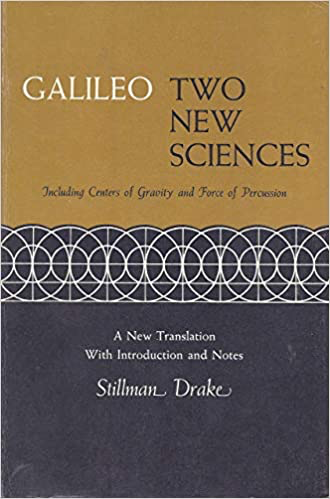
Galileo Two New Sciences
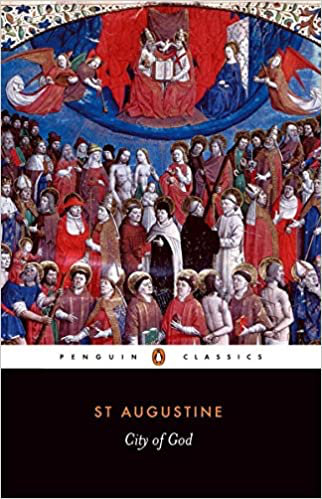
Augustine City of God
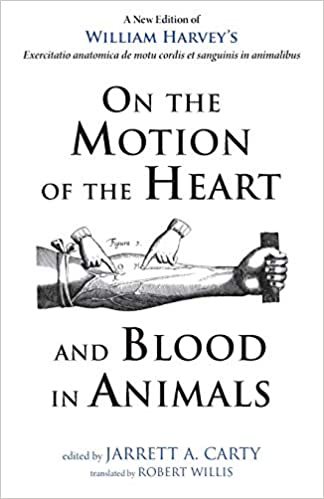 Wiliam Harvey OnThe Motion Of The Heart And Blood In Animals
Wiliam Harvey OnThe Motion Of The Heart And Blood In Animals

Montaigne Essays
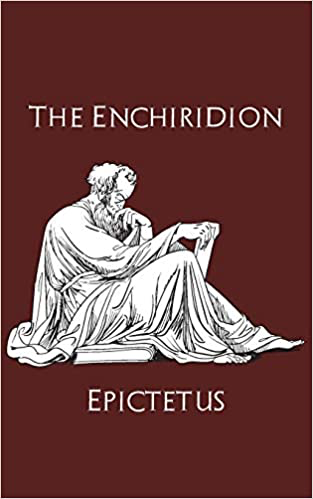
Epictetus The Enchiridion
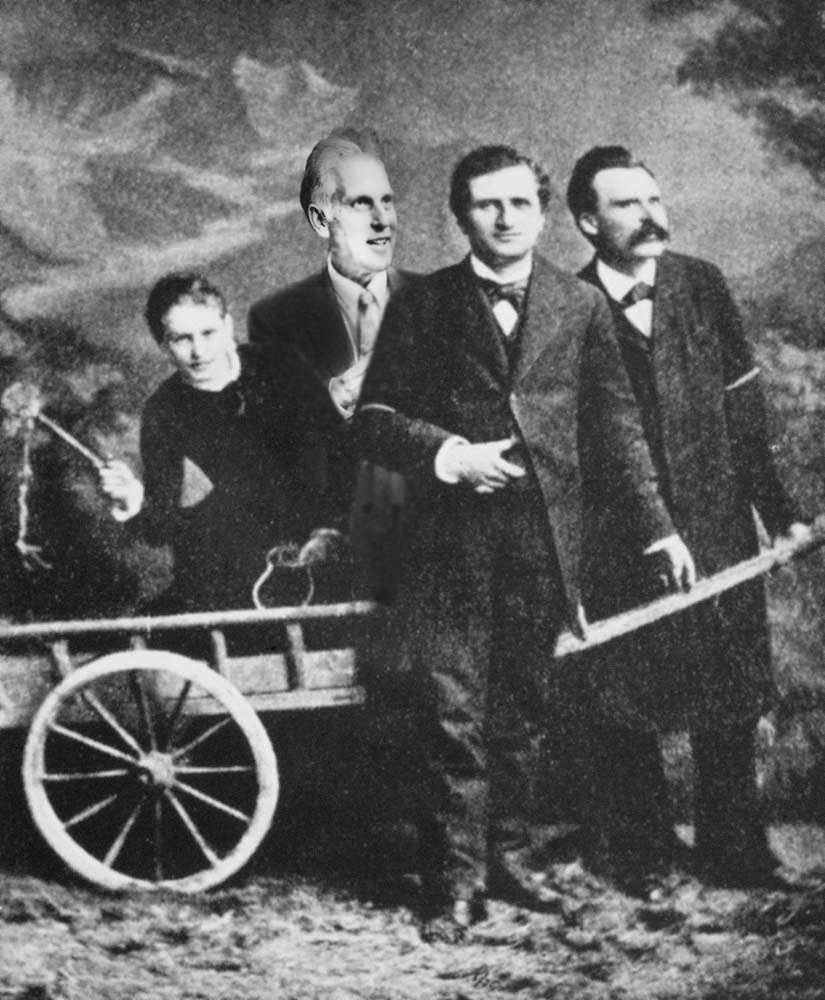
About the Author
Richard Marshall is still biding his time.